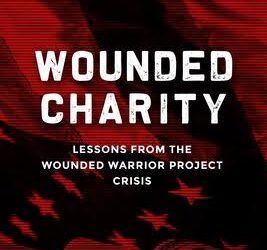Often the question goes something like this: “Everyone is so busy. Do we really need to talk to the program team? They are so busy. Can’t you just use the background materials?” Those of you who have worked with Impact over the years can probably guess my answer. No! (Politely, of course.)
Here’s why:
1. Fundraising copy is strongest when you lead with emotion. The problem is that many of the lawyers, scientists, lobbyists, doctors, engineers, case managers and other staff who deliver your program do not communicate with emotion. When they write reports, they are filled with statistics and complex technical or insider language that your donors don’t understand. The interview provides a safe and comfortable space for them to speak from the heart.
2. Fundraising copy needs to tell me what you will do, not what you have done. With rare exception, when an organization sends us background materials for a fundraising campaign, the focus is reporting out on what they HAVE been doing. To inspire donors to donate, we need to tell them how their money will help make more good happen in the world.
So, when organizations tell us to “just look at our website,” we almost always ask for a conversation. But getting the expert on the phone is only the first step. How do you make the most of that conversation?
Here are my tips for getting the best stories from your interviews with staff, donors and others:
- Take some time to warm up. Make the first few minutes about getting to know the person – and for them to get to know you – to increase their comfort so they can share more openly. Ask them to tell you about themselves, how long they’ve been with the organization, why they chose this work. And share something about yourself related to the organization’s mission. For example, “I’m so excited to talk with you because my grandmother always got your magazine and I’ve read it since I was little.”
- Since you have already prepared for the interview by reading all the background information, compliment them on some aspect of the work. Then ask clarifying questions about what you read. Demonstrating that you have done your homework will make them even more eager to help. For example, “Your materials say that President Trump weakened provisions of the Endangered Species Act, have those been restored in the Biden Administration?”
- Ask them how they organize their work into categories – what key actions does their work cover, such as research, advocacy, organizing, frontline work in communities. Then, once you are clear on that structure, ask them what is coming up in those key programmatic areas. This is how you get them talking about the future!
- Ask them about memorable moments in their work, such as a time when they felt like they were in the right place doing work that really made a difference. This is when stories come out. Our recent favorite was from a conservation scientist who shared about taking a nap in the forest and waking up to find the monarch butterflies had formed a canopy above him to protect him. Another way to get some emotional content is to ask them about a person they met in this work that they will never forget.
- Finally, ask them what they would say if they could sit in front of a room of your best donors. What would they tell donors about the difference that more money will make, and why it’s urgent now? Your job as the fundraiser is to make the strongest case for giving and you will be amazed at the tidbits your program teams provide in answer to this question.
- Close with this zinger, “This is hard work. What keeps you motivated to get up every day and keep going?” Here’s how one client answered that question, and it gave me goosebumps:
“The inspiration comes from the millions of people around the country who are standing up and fighting every day. They are not professionals. Not paid to do this. But they make their phone calls, write their letters, go to rallies –and they are making a huge difference. Being part of this work with all of them is what keeps us going.”
When creating content for your next fundraising campaign, connection is key. I encourage you to get up from your desk, walk away from the computer, and have a conversation with your colleagues. Convening on Teams or Zoom works too! Sure, we’re all busy – but I promise you, it’s worth it.




0 Comments